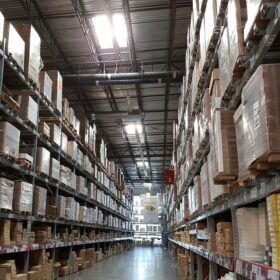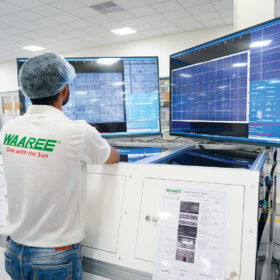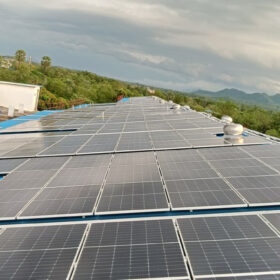Stable GPM polysilicon prices post-antidumping duty rates, optimism on firm demand
In a new weekly update for pv magazine, OPIS, a Dow Jones company, provides a quick look at the main price trends in the global PV industry.
India imposes antidumping duty on solar glass from China, Vietnam
India’s Ministry of Finance has imposed an antidumping duty on solar glass imports from China in the range of $673 to $677 per metric ton and for imports from Vietnam at $565 per metric ton.
U.S. solar cell manufacturing begins, with sights set on supply chain gap
According to the U.S. Solar Market Insight Q4 2024 report, domestic module manufacturing will be able to keep up with the rapid pace of growth in the U.S. solar industry, and cell production is ramping up.
Worker charged following alleged theft of 8,000 solar panels
An employee of a solar company based in western Sydney has been charged after allegedly stealing, and then selling, $1.2 million worth of solar panels.
New sodium-ion developments from CATL, BYD, Huawei
Sodium-ion batteries are undergoing a critical period of commercialization with Chinese cleantech juggernauts actively working on their products.
How developing economies are leading the surge in solar power
Favorable government policies have played a crucial role in driving the adoption of solar energy in emerging economies. However, investment in grid modernisation and energy storage solutions is crucial to unlock the next level of sustainable solar integration in these economies.
Waaree wins as pv magazine Awards recognizes Indian solar manufacturing
Gujurat based Waaree Energies takes the Publisher’s Pick prize at the pv magazine Awards 2024 in recognition of the company’s impressive solar production capability and ambitious plans for the future. It is the first time an Indian PV company has received this award.
Hungary deploys 1.3 GW of solar in January-October period
Hungary installed 1.3 GW of solar between January and October, bringing its cumulative PV capacity to 7.3 GW by the end of October, according to new government data.
India added 20 GW solar in twelve months ending October
A strong pipeline exists, and SBICAPS expects cumulative 50 GW of solar and wind additions in FY 2025 and FY 2026.
No FCPA violation charges against directors, clarifies Adani Green Energy
Adani Green Energy Ltd has clarified that its directors, namely, Gautam Adani, Sagar Adani and Vneet Jaain have not been charged with violations of the U.S. Foreign Corrupt Practices Act (FCPA) in the indictment by US prosecutors in an alleged solar-related bribery case.















